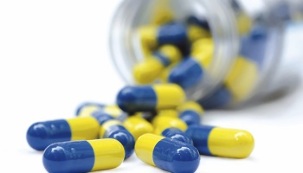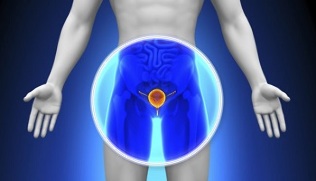
Prostatitis is an inflammatory or infectious urinary disease that affects the prostate gland and can lead to not only impotence, but also infertility. According to statistics, this disease is found in 50% of men. It is also worth noting that the disease is increasingly rejuvenating - often diagnosed in young people (under 40 years old). Treatment of prostatitis, both acute and chronic, is a fairly long process, but is often done with conservative measures - the use of prostatitis drugs, physiotherapy and corrective procedureslife style.
It should also be noted that surgery is not to be ruled out for such a disease - if the drug treatment does not give the desired result or is completely ineffective in a particular clinical case. In all cases, the treatment program is prescribed only by the doctor on an individual basis.
Specify using
Important!Even if you have typical symptoms it is not a reason to take any pills for the prostate gland. The clinical picture can be the result of another urological disease or even venereal disease. In addition, the symptoms may indicate prostate cancer, so the use of some drugs is not only ineffective but also dangerous. Medicines for prostatitis in men should only be prescribed by a specialist after diagnosis.
Prostatitis in the first stage has mild manifestations.
The following clinical signs may indicate the development of acute prostatitis:

- pain sensation during sex or when urinating. It is noteworthy that pain can appear even during erections and after intercourse;
- increased need to urinate, often accompanied by a feeling of discomfort; Pain
- in the pubic, groin, often spreading to the perineum and sacral region;
- with an acute form of the disease, body temperature may rise;
- impaired erection, but complete impotence does not occur; Pain
- on ejaculation;
- premature ejaculation.
In chronic prostatitis, the clinical picture is roughly the same, but manifests itself in waves. In this case, the symptoms are not as pronounced as in the acute form. It is this underlying course of the pathological process that often leads to a late diagnosis, when the disease is no longer incurable.
The doctor can determine that the drug for male prostatitis will be most effective in each case only after a comprehensive diagnosis has been made.
If prostatitis is suspected, the following laboratory and instrumental measures are taken:
- takes blood samples for general and biochemical analysis;
- Check the STD;
- PCR testing;
- urethral smear to check for bacteria;
- ultrasound of the rectal prostate gland;
- ultrasound of the genitourinary system;
- CT or MRI of the pelvic organs.

Treatment of prostatitis in each specific case.
Please note that this is only a sample diagnostic program. The exact list of tests - both laboratory and instrumental - is determined by the individual physician, taking into account the results of the physical exam and the collected history.
Treatment
The treatment facility, if there is no indication for surgery, is to take medicine. It is impossible to clearly answer the question "which pills are most effective for prostatitis", since the drug is prescribed individually. Therefore, what works for one patient may not be helpful for another.
Medicinal treatment of prostatitis involves taking the following universal drugs:
- antibiotics;
- nonsteroidal anti-inflammatory drug; pain reliever
- ;
- alpha blockers;
- immunomodulators;
- herbal tablets or homeopathic remedies.
Duration of medication, regimen and dosage are also determined by the attending physician.
First of all, the doctor prescribes antibiotic therapy.
Antibiotics
In order to determine which antibiotic is right for a patient, bacteria are first cultured. In most cases, treatment is done:
- tetracyclin;
- penicillin;
- fluoroquinolon.
Antibiotics cannot be taken on your own because drugs of this pharmacological group can have extremely negative effects on the functioning of the body if they are used incorrectly.
The side effects include:
- allergic reactions;
- complications from kidney, liver function;
- tinnitus, dizziness, headache; dermatitis
- ;
- drowsiness, lethargy;
- nausea and vomiting.
If any side effects are detected, stop taking the medicine and consult your doctor.
Doctors have noticed that pain and other symptoms of prostatitis diminish after taking antibiotics, even in cases where the infectious nature of the disease has not been determined.
For the treatment of non-bacterial prostatitis, the patient is prescribed antibacterial drugs.
Nonsteroidal Anti-inflammatory
Preparations of this group are indispensable in the treatment of prostatitis of any kind, as they reduce inflammation, while at the same time reducing the unpleasant symptoms that this pathological process causes. output - pain, burning, a feeling of heaviness in the groin area.
But should not take this drug if you have a stomach ulcer, myasthenia gravis.
Pain reliever
In this case, medication is used to treat symptoms.
The attending physician also determines the safe dosage. You should not overdo such drugs, because the body will quickly get used and not give the desired therapeutic effect.
Painkillers allow a man to lead a full life.
Alpha Blocker
Drugs of this pharmacological group are used to improve the flow of urine and they are used in most forms of prostatitis.
It should be noted that in most cases, these drugs are used to treat symptoms rather than to eliminate the underlying disease.
In addition, herbal homeopathic remedies are also used. They are used when antibiotics are not needed.
Of course, no one can ban taking drugs without a doctor's prescription, since many drugs are sold in pharmacies without a prescription. However, you need to understand the following - taking medicine without a doctor's prescription can be hazardous to your health. Even if symptoms go away, the disease itself may not be eliminated. This means that the chronic risk of the pathological process and the development of complications increase simultaneously.
When you have your first symptoms, you should seek medical attention, not to treat yourself. The doctor will not only choose the effective pills, but also prescribe physiotherapy procedures and make general recommendations. Only such a comprehensive treatment of prostatitis gave the desired therapeutic effect.
In addition, one should take the prevention of these diseases and periodically (every six months) see a preventive visit by a urologist or urologist.


























